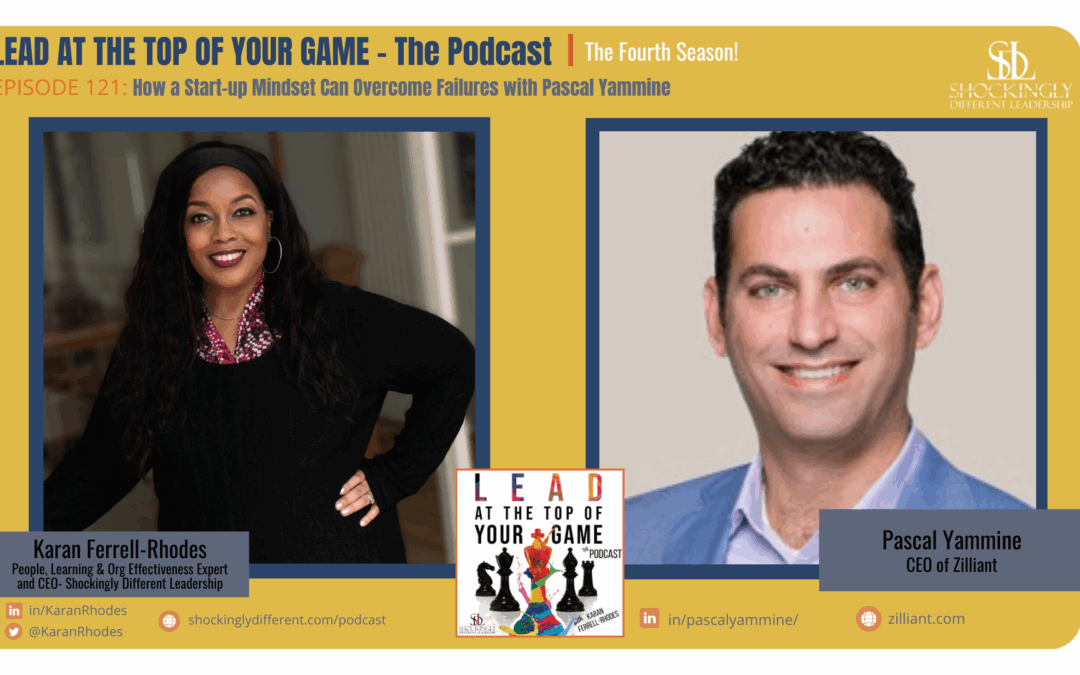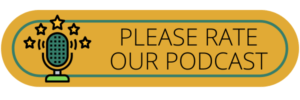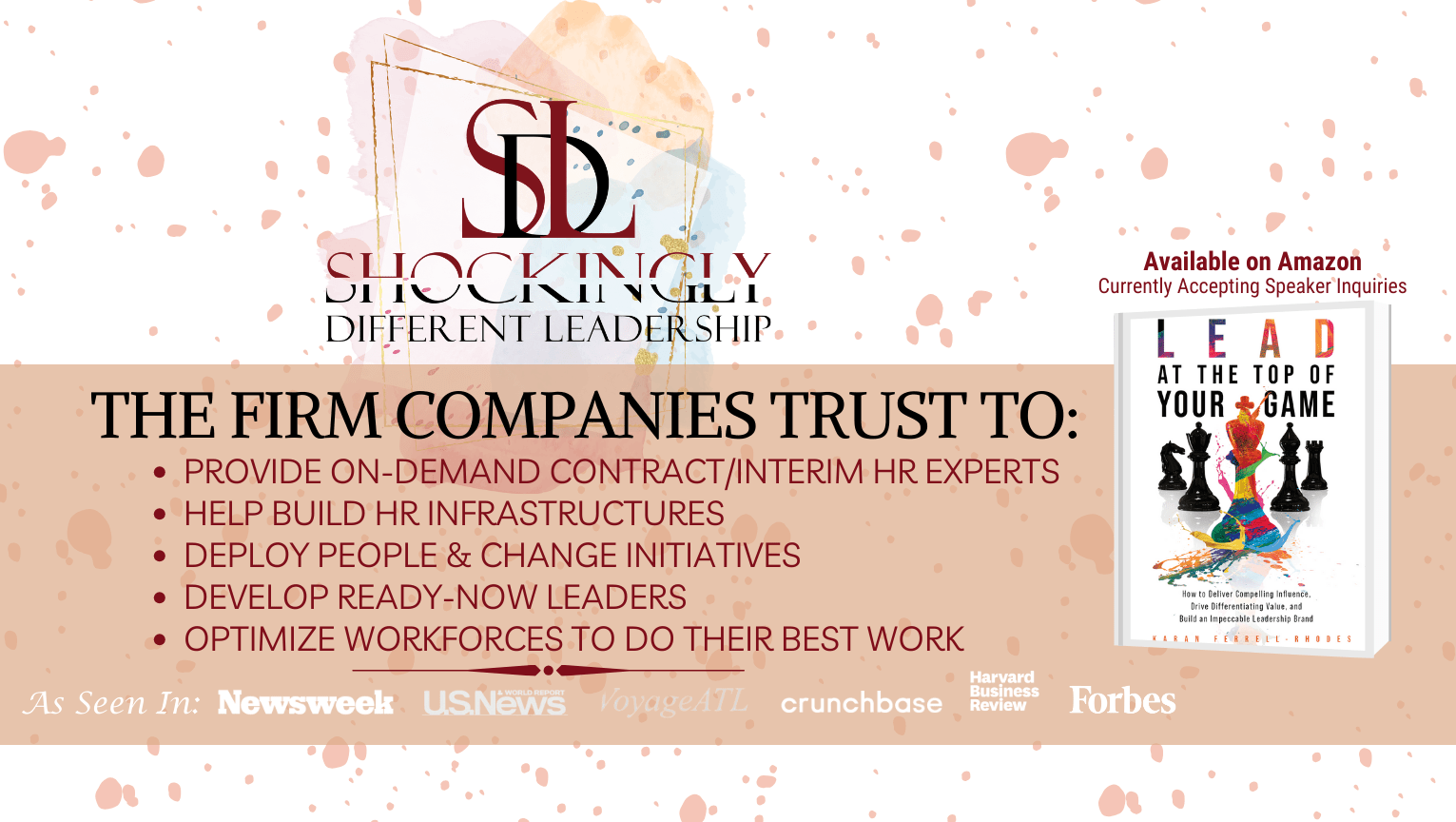IN THIS EPISODE, KARAN FERRELL-RHODES INTERVIEWS PASCAL YAMMINE.
In this episode, we discuss the complexities of pricing in the business world and Pascal Yammine’s approaches to leadership. He emphasizes the importance of agility in pricing strategies in today’s volatile market. Pascal shares his leadership insights, focusing on authenticity, the significance of people, and learning from mistakes. He also highlights the balance between data and intuition in decision-making.
Pascal Yammine is the CEO of Zilliant, a company specializing in helping companies manage the pricing lifecycle and the critical role of company culture, especially during mergers and acquisitions.
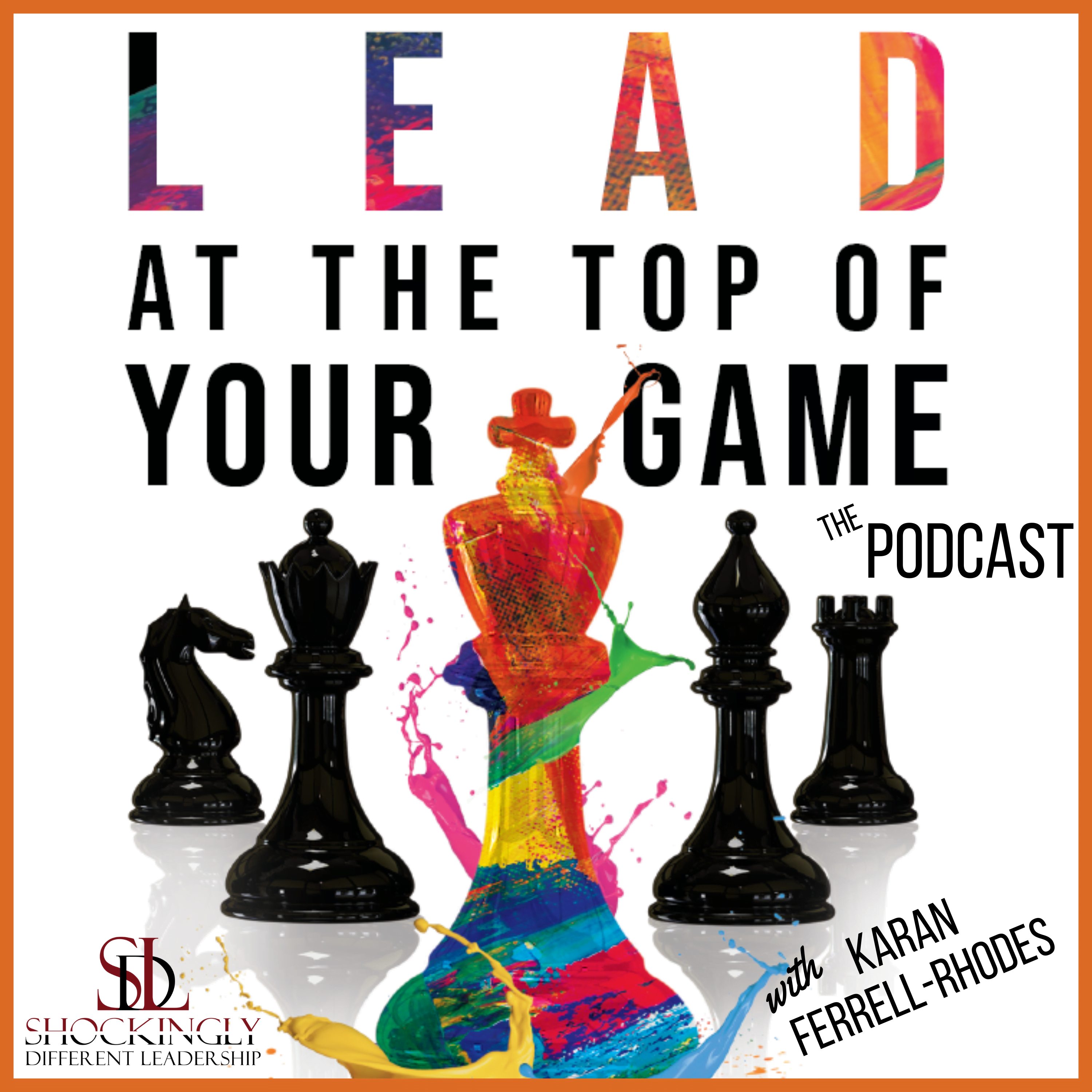
Posted by
SDL Media Team
Rather view our video podcast?

WHAT TO LISTEN FOR:
- What are the key challenges companies face in developing effective pricing strategies?
- How does Zilliant’s platform simplify the pricing process for businesses?
- What are the top trends influencing pricing strategies in today’s global economy?
- Why is focusing on people and company culture crucial, especially during mergers and acquisitions?
- How does Pascal balance data analysis with intuition in his role as CEO?
“Willingness to be wrong [differentiates strong leaders].”
FEATURED TIMESTAMPS:
[02:58] What Zilliant does and its impact on organizations
[05:35] Top trends in pricing strategies
[06:47] AI’s role in pricing strategies
[07:53] Pascal’s approach to rallying the masses behind the vision of the company
[12:27] Leadership advice for mergers and acquisitions
[15:26] How Pascal measures and manages success and failure
[20:55] Pascal’s approach to balancing data, facts & intuition in decision making
[22:39] Signature Segment: Pascal’s entry into the LATTOYG Playbook: Being comfortable with failure and learning from past mistakes
[22:23] Signature Segment: Pascal’s LATTOYG Tactic of Choice: Leading with a Drive for Results

ABOUT PASCAL YAMMINE
Pascal Yammine is the CEO of Zilliant, which he joined in 2022. He brings 20+ years of experience in executive roles within enterprise software and business consulting, with proven leadership in developing strategic visions, new products, globally scaled programs, and leading organizations through digital transformations.
Before joining Zilliant, Pascal was the SVP & GM of Salesforce Revenue Cloud, leading product direction, marketing, go-to-market, and operations. He scaled the Salesforce CPQ business into the next $1B cloud. Pascal also previously held various leadership roles in the Salesforce Customer Success Group, senior consulting and executive roles in media/communications, ran his own consulting firm and was CIO of a communication service provider.
LINKS FOR PASCAL:
- Website: zilliant.com
- LinkedIn: linkedin.com/in/pascalyammine
ADDITIONAL RESOURCES FOR YOU:


Episode Sponsor
SDL is the go-to firm companies trust when needing to:
- supplement their in-house HR teams with contract or interim HR experts
- implement leadership development programs that demonstrate an immediate ROI and impact on the business

Episode 121 | How a Start-up Mindset Can Overcome Failures with Pascal Yammine
Pascal Yammine 00:00
Why is pricing so important? It drives, not only, you know, it drives margin. Is a really core part of what pricing has historically been tied to. But it also tries growth. Is it pricing, if done well, has ability to drive and give car customers ability to be more strategic in thinking about how they can grow the revenues and also maintain margins and have that agility to do that.
Voiceover 00:05
Welcome to the “Lead at the Top of Your Game” podcast, where we equip you to more effectively lead your seat at any employer, business, or industry in which you choose to play. Each week, we help you sharpen your leadership acumen by cracking open the playbooks of dynamic leaders who are doing big things in their professional endeavors. And now, your host, leadership tactics, and organizational development expert, Karan Ferrell-Rhodes.
Karan Rhodes 00:36
Hello, my superstars. This is Karan. Welcome to another episode of the leader at the top of your game podcast, we have a absolutely tremendous guest with us today that I cannot wait to have a deeper conversation on how he approaches leadership. And his name is Pascal Yammine, and hopefully I didn’t murder that’s Pascal Yamin, who is the CEO of a company called Zillant. And Zillant is a tech company that enables other companies and corporations to manage the entire pricing life cycle on a single platform so they can create better buy in experiences and drive profitable growth. And if any of you have been in any company worth their weight in goal, you know how challenging pricing strategies are. And so this is a company that actually helps organizations with that. And before joining Zillant, Pascal was the SVP and GM of Salesforce Revenue Cloud. And he led the product direction, go to market and operations. And he has, you know, over 20 years as a tech executive. And you know, I came from Tech. My last big role before founding the company was 14 years at Microsoft, so I just absolutely eat up tech conversations. But we’re so excited to hear some of Pascal’s leadership insights today. So welcome to the show, Pascal, t
Pascal Yammine 01:57
Thank you. Thank you. Karan,
Karan Rhodes 01:59
Awesome. Have you well before we dive deep on our conversation, one thing we always love to know is a little bit more about our guests. So for just as much as much as you feel comfortable, can you give us just a sneak peek into your life outside of work?
Pascal Yammine 02:13
Well, I mean, it’s mostly behind me. So my school, the past lives, and then my current life, which is my kids. I have three beautiful daughters and my wife, and they keep me very busy and happy.
Karan Rhodes 02:24
Oh, that’s they’re so gorgeous. I’m sure they do non stop, probably,
Pascal Yammine 02:29
Yes.
Karan Rhodes 02:30
That’s fantastic. Well, thank you for sharing, and let’s go ahead and move into kind of the meat of our conversation. I know I did not do zillion justice. So let me just, first of all, start out there, and let you kind of categorize a little bit more, or maybe one tick down. What zillion does? How does it support customers, and what impact that you try to kind of have in the market?
Pascal Yammine 02:54
I think you did a great job. I think did really great job. And as you said, if pricing is complicated, it’s a hot topic. You hear about it every day in the news, oftentimes in consumer pricing, we are focused on B to B pricing. But it’s a hot topic for a reason. It’s people don’t understand it. I mean, it’s like, this is just kind of almost like this vacuum of a topic where, you know, it’s it drives a lot of fear and anxiety for people, because you can get it wrong, and it has a big impact. You can get it wrong. You hear stories about companies who have gotten it wrong, how it’s impacted their brand or their financials, and you know, so there’s a ton of fear, and what we hope to do at zillion is to help alleviate some of that fear, help to actually simplify the process, make it more scalable and accessible to companies who have not been able to invest in pricing the way some of the large, large enterprise companies have, by building it into a SaaS single product platform.
Karan Rhodes 03:47
And this might be a big assumption of mine, but I’m assuming there’s a lot of consultation that goes into that, because the markets are so volatile, and, you know, industries change at a nanosecond. So I’m sure this is a ongoing area of focus on what they engage or am I totally wrong?
Pascal Yammine 04:05
No, it’s actually 100% accurate, and it’s a very heavy in the consultation, and that’s been the space, and I think that it will continue to be, because there’s a lot of expertise, and that’s where the challenges and the opportunity as well. Not everybody can afford that consultation. So what we’re looking at is, you know, taking the common best practices that the industries that we focus on, we focus on manufacturers, distributors, primarily say, here’s what the best practices are. Here’s how we can democratize what we’ve learned through all the consultation, because not everybody can afford the consultation. So just making it a little bit more accessible, not to get rid of the consultation, but to make it less required, I guess is one way to think about very
Karan Rhodes 04:44
Interesting. Now, do you all just focus on the US markets or global markets?
Pascal Yammine 04:48
No, we are global. We’re about 60% in the US, and majority of the rest across Europe, very heavy in manufacturing and distribution industries. And so he’s look at the manufacturing and distribution sectors. There’s a ton of opportunity across the world, and most of our customers are large enterprises, so they may be headquarters in the US, but they’re global, and across the world, including Asia. We are physically our employee base is mostly in the US and in Europe, but we do have contractors around the world as well.
Karan Rhodes 05:14
Very interesting, very so I’m just curious, Pascal, what are some of the top trends you’re seeing right now in as companies are, you know, challenge take tackling their pricing challenges. What are some of the top of mind things for? I’ll just say the C suite and some of the companies that you’re, you know, partnering with?
Pascal Yammine 05:32
Well, I think you mentioned it earlier introduction. That’s why I said you did a great job. Why is pricing so important? It drives, not only, you know, it drives margin. Is a really core part of what pricing has historically been tied to. But it also tries growth. Is it pricing, if done well, has ability to drive and give car customers ability to be more strategic in thinking about how they can grow the revenues and also maintain margins and have that agility to do that. That agility is really critical. If you look around the climate we have around the world. You know, whether it be environmental, whether it be bird flu with eggs, whether it be different conflicts in the in Europe, those have an impact on pricing in the cost of the goods and supplies and tariffs that we just say for tears. So companies need to have the agility to adapt, and they can’t wait six months or a year to do that. So giving them that ability to adapt quickly and adjust and be strategic in doing so, not reactive, is our core focus,
Karan Rhodes 06:27
interesting. And I’m also curious, Pascal, what are one of the biggest either myth or what I’ll call areas of quicksand that companies either think or face as they think about pricing strategies.
Pascal Yammine 06:41
AI is a topic of
Karan Rhodes 06:42
It’s so hot right now.
Pascal Yammine 06:44
It is pricing, pricing and pricing optimization has been using AI for a long time. I mean, obviously there’s different terms in terms of AI. I think number one I would say, is you need to be the data scientist to use pricing. No. Then that is, there is some really complex, sophisticated pricing algorithms tied to the AI enables and and we’ve been using for 25 years, but that’s, that’s what we do. Our customers don’t need to be those experts. That’s the idea. Of course, they don’t need to go there. And you typically see companies go from zero to 100 and that, on that level of complexity, is, I think, what causes some fear and almost the feeling that it’s not achievable, I’d say we can’t do that, therefore we can’t take advantage of pricing. Pricing is so much more than the AI and the mathematical part of pricing. There’s a ton of social elements there.
Karan Rhodes 07:32
Wow. Let me switch to kind of your approaches on leadership, because one of the things we try to do in the podcast is to, you know, provide our listeners at least one or two tidbits that they can kind of think about, or lessons to kind of resonate on later. And so I’m curious about kind of your approach to leadership, leaning up zillion, because I know it’s a very dynamic, global company. How do you stay sane? And you know, what is your approach to rallying the masses behind the vision of the company?
Pascal Yammine 08:02
It’s a really common question, but a really hard question. I because I think everybody has this preconceived notion of what it means to be a CEO, and I’ve, this is my first role as a CEO. I mean, you mentioned Salesforce, the General Manager. It’s similar, but not the same, right? So we think we all understand that, yeah, and I think number one for me was be myself, not try to be the CEO. You know, Mark Benioff is a very great CEO. I can’t be Mark. I’m not mark. So not try to pretend to be Mark doesn’t mean I can’t learn from him. And so bringing the learnings that I learned from him and from Salesforce in my previous experiences to the conversation, but not try to be somebody I’m not. That’s number one. And Karan, I don’t know it seems like a simple one, but I think it is the most thing, most important thing, I remind myself all the time I have heard the feedback, hey, you need to be more more emotional, maybe more provocative. You need to be more of a marketer. That’s not me. That’s not my background. And so have that tendency to hear the feedback and say, Well, let me think about and get tempted. I have to remind myself it doesn’t mean that those aren’t real feedback. It just means that I’m just surround myself with the team. And so if I have a certain style, that means I may need to look for my leadership team to make up for the other styles. And so my specific style is very engaging and very operationally focused, and I’m very focused on the people, you know, I think one of the most it’s 15 seconds for a background me is hard, because I’ve gone through quite a lot of turns in my career, but it started back in school, when I learned, when I got a Master’s at University of Illinois, my focus was on how technology impacts and can be used to make people and teams more efficient, and that’s been the one common theme throughout my entire career, is technology impacting how organizations work and people behave. And so I’m really focused on the people part of the business, which means I need to have other people focusing the other parts. And for me, the style is knowing where I’m good and making sure I have the right balance of people to bring the company. What the company needs to be successful,
Karan Rhodes 10:01
You know, I think that’s the magic bullet, the Pascal. Because if you focus on the people you know that is, is kind of golden to help build trust, to kind of weave the red thread around the mission, vision and strategy of the company, and the fact that you have made that one of your top priorities will buy you a lot of air cover, in my experience. And I’m all about, you know, I’m in the whole strategic HR and infrastructure, workforce, infrastructure space, and so, you know, focus on the people is huge, huge for organizational success,
Pascal Yammine 10:35
Especially in today’s world.
Karan Rhodes 10:37
Definitely. Yeah, you mentioned Mark Benehof, and he’s on one of my faves as well. I’m just curious if there was a lesson or two that or observation of him that you’ve always kind of kept in your hip pocket as you’ve moved to CEO Zillion.
Pascal Yammine 10:53
I’ve learned a lot from my time at Salesforce, from Mark and from a lot of people who over 14 years at Salesforce, I’ve evolved in many roles across the time. One of the things that I usually think about when I think about Mark, and what I learned was his willingness to be wrong and knowing some of your research to talk about strategic, courageous agility, I kind of think of it in that way. I have seen him over and over be willing to change course, even though the course that we’re on is a course he really advocated strongly for once he realized, hey, we’re not seeing the results. And I think that’s hard. It’s really hard for people to do, because it’s like this commitment they made, they stood for a course. And I’ve seen him do that, and I’ve seen him do it so openly, and kind of make it not only something for him to do, but make it okay for us to do that as well. So as in leadership roles at Salesforce, giving me the kind of courage to have that type of agility as well in my thought process and my choices, and it’s needed in a business where you change so much. And so that’s that would be the number one I would share,
Karan Rhodes 11:50
Very valuable, very insightful. And you know, in today’s world, you know, another passion of mine is around the whole governance realm as well. And you know, in today’s world, we’re doing a lot of mergers and acquisitions. I mean, that’s still kind of hot right now. And I’m just curious, because you’ve experienced that, what are some leadership what is some leadership advice that you have for our listeners when they are involved in or facing some type of merger acquisition? How do you meld the two different cultures, and, you know, of the two organizations into one pretty quickly, while you’re building the plane and flying it at the same time.
Pascal Yammine 12:29
Yeah. Well, you said you come from the HR practitioning side, and yeah, you know, there’s there’s technical synergies and integration, there’s operational integration, there’s customers and go to market integrations. But I think overall, the hardest is the people side, especially when you have a fairly significant acquisition, if it’s really small, it’s kind of easy, just you made the change. And it is this, but when you see a sizable one, you’re taking two companies, often times that are two different cultures. I think it’s probably number one, the hardest, number two, the most underestimated area. And you know, you see it in the terms of the results, where people don’t stick around, or people have that friction, and you don’t get the benefits and the synergies of the acquisitions that you’d hope for in the business plan, because of that resistance and the lack of collaboration between the teams. I will almost always, Karan, to go to your practice area practice because of back my background, I almost prioritize the people side, organizational, cultural side, as as the biggest area of focus, and also probably the most underestimated or under invested in with lease investment, unfortunately. So that’s usually gonna be my answer.
Karan Rhodes 13:37
I love that answer.
Pascal Yammine 13:39
Yeah,
Karan Rhodes 13:40
I love that answer, and I’ll even share because, you know, board advisory has been an additional offering of our firm as well. And so many, you know, corporate boards, corporate and private boards actually are expanding the scope of their, you know, compensation committees or creating a separate talent committee even at the board level, because they want to drive more of the oversight for people and cultures and what have they want to work with their CEOs and the C suite in doing that. So if people aren’t really resonating with how important the people and culture side are, they’re missing out.
Pascal Yammine 14:19
I agree. I mean, Zillion was bought by a private equity firm out of Chicago, Madison, Dearborn partners. They were the ones who brought me to zillion. And I think that’s one of the important things that they, as a firm, have demonstrated to me that they cared well. And I think that was, I would say, kind of a surprise. It was a surprise. You hear all these things about private equity firms, and they’re how boards work, and how they run their boards, right? I think one of the things I’ve really been excited about was having our private equity firm, our sponsors, as well as our independent Board members, care about the talent, care about the culture, employee experience, and it is a topic in every board, yes, not, maybe not as much of a governance topic, because, you know.
Karan Rhodes 14:59
Right. Let’s touch base to see what’s going on. Yeah, that’s right. Yeah, that totally makes sense. And I’m curious, you know, how do you measure success and failure in your role as a CEO? Because you have a lot on your shoulders and then pulled in many different directions. How do you keep the balls juggling, and how do you measure success and failure?
Pascal Yammine 15:20
That’s it’s hard. There’s the obvious financial indicators that are company level one. But I will go back to the answer I said I will always give you, which is people
Karan Rhodes 15:29
Love it.
Pascal Yammine 15:29
You know, if you look at the team resilient, a lot of those people are people who I’ve brought from my experience in the past, people I’ve worked with, or have worked with through or been referred to me through them, and seeing the leadership that come, seeing the types of diverse people who have come to zillion, seeing them promoted. We just had a person who joined us. We worked at Salesforce, and I knew him from Salesforce, and he left to another job, and seeing him be able to get a better job, I love it. I love it means that he gained something as a part of being here. So it’s seeing the progression of people in general, especially a leadership team, develop, I think, is the number one thing that I look at outside of the core financials. Of course, everybody looks at those, and it’s hard when we go through transformation. I’m sure you have plenty of great stories about companies are going through transformation. We are resilient. Are changing our business significantly,
Karan Rhodes 16:20
I can imagine. And, you know, one of the things that is a hot topic in business news and articles is all about, you know, workplace well being. And so I’m just curious, how do you advise, like, your C suite team on things like, how not to spread themselves too thin, and where to focus on, you know, how do you I know it’s always busy that’s never going to be taken out of there, but how do you help them approach at least a work life prioritization?
Pascal Yammine 16:48
Yeah, it’s love your feedback on that question. So hopefully you’re giving your thoughts, but to me, it’s got to be by example. And I would say having kids has definitely made a change in my three, three girls, twins, who are just turned 12 last week. Oh, congratulations. 10 year old. Just so just like that change. It forces me to like, hey, I need to take time. So if I go on vacation and leave work, oh, you know, like, don’t answer my phone calls. It’s such an example. If I have to say, I need, I need a day off. I needed Mental Health Day, whatever it is. So just number one, leading by example. Because if you’re working, and I used to work, you know, and I still work a lot, just being specific, I like just, you know, tight time away, covering for people when they go on vacation, giving them this, you know, try not to call them as best as possible. I think is important to set that example internally, so that other people feel safe doing it. You know, it’s hard, because we are global. We are remote first. I know a lot of companies are going back to the office. We are remote first as a company, and it’s but it’s harder to do that. And I think that mental health and like workplace safety, in terms of like the mental safety and is important, and I’m always looking for different ways to encourage that behavior and different ways to show that behavior. So I’m all love any feedback you have and what you’ve seen work, well,
Karan Rhodes 18:12
Wow, it’s a lot. You know, it depends upon the person too, because how one person defines what is well being for them is different for another individual. So one of the things we always advise is to make sure leaders treat each of their staff as a person of one, to try to better understand and then try to see where the trends lie, and see what things that you can implement at a company wide level versus what you can offer one on one. There’s no perfect answer, I’m sure you know, because you’re probably battling it too every day. But it’s all about having that conversation and helping those who are finding that they’re they’re struggling in one area or another, and trying to find out, you know, is there a great win win solution for them both, yeah,
Pascal Yammine 19:03
That’s a great point. Karan, I mean, I talk about, I have kids, not everybody, not all my leadership team has has children at home, or maybe they have children who are away from home and already grown. And so trying to build a model that is tied to my situation won’t work for everybody. And also time zones, we have what we have on a monthly basis. We call it resilient Zen days.
Karan Rhodes 19:22
Oh, I love that.
Pascal Yammine 19:23
So every half a day of like, no meetings, of no work, take time mental health time. But one of the we were globally distributed, and so trying to create it as like, always the same day at the same time is really hard, because if it’s Friday, my afternoon, that might be morning, and people in West Coast might be evening. In Europe, that’s right, we try to create someone some flexibility in those programs, not to make it all tied to me or to wear headquarters. But yeah, not everybody, not everybody has the same situation as me. I think that’s good. That’s a good point here.
Karan Rhodes 19:55
No, you’re so right. And I’ll even say we’re remote first as well. All, even though we have offices in Atlanta, but even in my direct team, we have folks from all over the world. And, you know, we rotate staff meetings. You know, there’s always going to be a time zone that gets the short end of the stick, you know, whether it’s, you know, California, Atlanta, Tokyo, you know, or the UK, somebody’s going to get the so we rotate so that it’s not bad for one group, you know, all the time, but you know, those are the types of things that make sense, and you can do that in your business. It’s definitely something to, you know, to consider, yeah, you know, I had another CEO on a previous podcast who talked about how decisions at his level is a mix of looking at data, but then you know your gut feel, and you know you’re having to move forward no matter what. So I’m just curious for you, and how much does I mean we’re both technology loves, but how much does data and facts weigh with you versus your gut feel?
Pascal Yammine 21:01
That’s a really good question, I think, especially in a space that like we’re in, where we’re trying to change it. Data from the past is useful, informative, but not an indication of where we want to be in the key because we are intensive. It’s a balance of learning from the data that we have, but not ignoring it, but the same time not getting too bogged down with it. And I think that I would say it is probably 5050, at this point, data and got maybe 40% data to 60% got because of what I just said. And I think it’s tough.
Karan Rhodes 21:32
It’s very tough. I know from my end, it is because you want to be informed. But then sometimes, you know, you have that experience and you’re thinking, gosh, if I had to, I’m not a betting woman, but I had to bet three pennies. I think we need to really go this way.
Pascal Yammine 21:48
And gut. Gut is not just my gut. I mean, I have a great leadership team who have great accomplishments in their own ways, and the data we look at collectively, and then I would expect, and I look and I appreciate and respect their their gut in terms of what they think as well. So
Karan Rhodes 22:02
Yeah,
Pascal Yammine 22:03
Informed, got instinct.
Speaker 1 22:05
I love it. I love it. Well, pasca, we’re about to wrap in on time. But before we ask you our signature question that we always love to ask our guests, is there any last piece of advice or a nugget that you want to leave with our listeners?
Pascal Yammine 22:18
Well, I think just leaving you’re kind of continuing that last point, you have to be okay with failing and making mistakes. I can I know there’s a lot of things. If I go back and say, well, three years ago, I made this decision hire this person, or I made this or whatever it is, I you know, you can always look backwards and say, I wish you didn’t make that. You learn from those failures, and that kind of gives you the ability and the okay to kind of go with your gut a little bit more than than than you would normally think, more often than I it’s when I didn’t go in my gut and I was too bogged down on data, that’s when I regretted it. So being okay with failure is probably one of the most important things I’ve learned in the last couple years.
Speaker 1 22:54
All right. Listeners, you’ve heard it from Pascal, take it to heart. Well. Listeners, you know, our signature question comes from the research that we did on high performing leaders and organizations around the world, and it’s all about leadership execution. And Pascal was so kind to share that out of the seven buckets of leadership execution tactics, the one that kind of resonated with him, as you all know, all seven are equally as important, and use them at different times. But the one that really resonated with him was leading with a drive for results. And for my newer listeners out there, drive for results is exactly what it sounds like. It’s all about being very focused and tenacious, about making sure your end goal is achieved, even if you have to pivot along the way. So curious minds would love to know Pascal, why? Leading with the drive for results really resonated with you.
Pascal Yammine 23:46
It’s hard to choose. As you said, they’re all equally important, and it can go and have this debate for a long time. So I had to pick one, you forced me to pick one. That’s the one I picked.
Karan Rhodes 23:54
I did! Yeah, guilty as charged. So here’s my
Pascal Yammine 23:57
Quick version. Number one starts with results. You have to know what you’re trying to accomplish. And that’s why I like is so the first is, are we, do we have? Are we aligned on what what success is, what problem trying to solve, why we want to define it? And so the one of the reasons, one of the main reasons I ended up choosing that one, is because it forces you to have this definition of results. What is, what are the results you’re driving towards, once you have a common understanding of what success is, what a win is, what the problem you’re trying to solve is, whatever that is, then it’s just focusing, just so much distraction, having that focus and getting to that outcome. It’s a hard thing to do in this world where there’s a ton of noise coming in so, so those are the two reasons for it, having a clear definition of results, and then obviously the focus, getting rid of the noise, so that you can accomplish share the team.
Speaker 1 24:41
Oh, perfect. Thank you so much for sharing your perspective on that. And as you know, we’re going to have a ton of information about you in our show notes, your bio links and what have you. But before we let you go, I want to give you a little air time to share a couple of things I love. For you to share, where audience members can find out more about you and zillion. And then also can, if you can repeat who are the ideal companies that you work with, so that folks will know if your services are something that you should you know definitely take a second look at.
Speaker 1 25:17
Web presence, LinkedIn or LinkedIn. Just go to zillion.com. We do have our customer event in April in Austin called Mindshare. We just assured our LinkedIn a couple days ago. We have Jeffrey Moore speaking as our keynote speaker. Really great event. A lot of opportunity to meet part of the team, as well as other customers who are tackling the problems terms of our companies and our ideal customers. I mentioned before manufacturer, if you manufacture anything, and distribution companies, food distribution, auto parts distribution, are good example. Those are the companies that we are primarily focused on. And again, across all sizes and all geos. We have a lot of great examples. And anybody who joins us in Austin at mindshare can see some customers who have shared their stories of how they leverage zillion to deliver profitable growth, and love to talk to anybody.
Speaker 1 26:02
Sounds good. What sounds like listeners? If this is the space you’re interested in, you might want to take a second look at Mindshare coming up and attending them that can give you a bit of more of a preview of the impact that zillion can help your organization make. And you can also follow them on LinkedIn. As we all know, we kind of live there when we need to learn more about people and companies, so definitely do that well. Thank you so much, Pascal, for the gift of your time and sharing quite a few of your insights with our listeners.
Pascal Yammine 26:32
Thank you, Karan,
Karan Rhodes 26:33
Awesome, and thank you to listeners for the gift of your time as well. Because, as we always like to say, we know that there’s a literally millions of other podcasts you can be listening to, and we do not take your patronage lightly. All that we ask is just you please like and subscribe to the podcast on your favorite podcast platform of choice, and be sure to share the podcast with just one friend, because by doing so, it’ll help us all to better lead at the top of our games. Thanks so much, and see you next week!And that’s our show for today. Thank you for listening to the lead at the top of your game podcast, where we help you lead your seat at any employer, business, or industry in which you choose to play. You can check out the show notes, additional episodes, and bonus resources, and also submit guest recommendations on our website at leadyourgamepodcast.com. You can follow me on Twitter, Facebook, Instagram, and LinkedIn by searching for the name Karan Rhodes with Karan being spelled K a r a n. And if you like the show, the greatest gift you can give would be to subscribe and leave a rating on your podcast platform of choice. This podcast has been a production of Shockingly Different Leadership, a global consultancy which helps organizations execute their people, talent development, and organizational effectiveness initiatives on an on-demand, project, or contract basis. Huge thanks to our production and editing team for a job well done. Goodbye for now.

Want to be a Podcast Guest?
Check out our guest qualifications and submit our brief form to be considered.
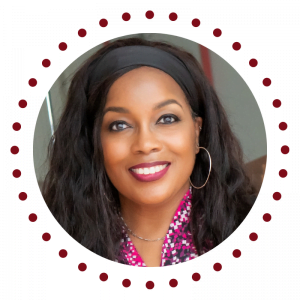
Want Karan to be Your Podcast Guest?
- Blended Workforces & the Gig Economy
- Critical Execution Tactics of High-performing Leaders
- Entrepreneurism & Leading Your Business
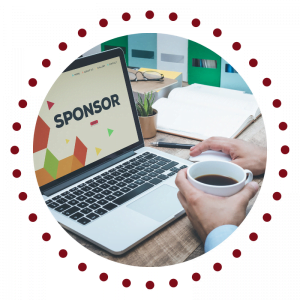
Want to be a Podcast Sponsor?
All sponsorships come with a featured spot on show notes pages.
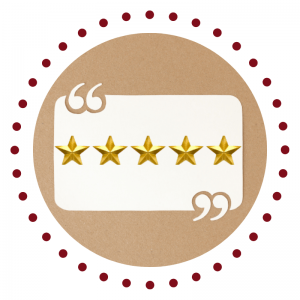
Like the Show? Please Leave a Review
If you like the show, it would mean the world to her if you left a quick review.
Your word is golden, so a HUGE thank you in advance!

#KeepInTouch
via our podcast alerts
Subscribe now to discover why thousands of monthly listeners who are passionate about doing their best work prioritize time each week to listen to the Blended Workforces @Work podcast.
#AboutSDL
#WhereToFindUs
MAILING
4480-H South Cobb Drive
PMB 219
Smyrna, GA 30080
PHYSICAL
2121 NewMarket Parkway
Ste. 108
Marietta, GA 30067
#ContactOptions
Customer Service Email:
service@shockinglydifferent.com
Call or Text:
770-384-1103
#Office Hours
MON-FRI
8:30 AM – 6:30 PM
Weekends By Appointment

